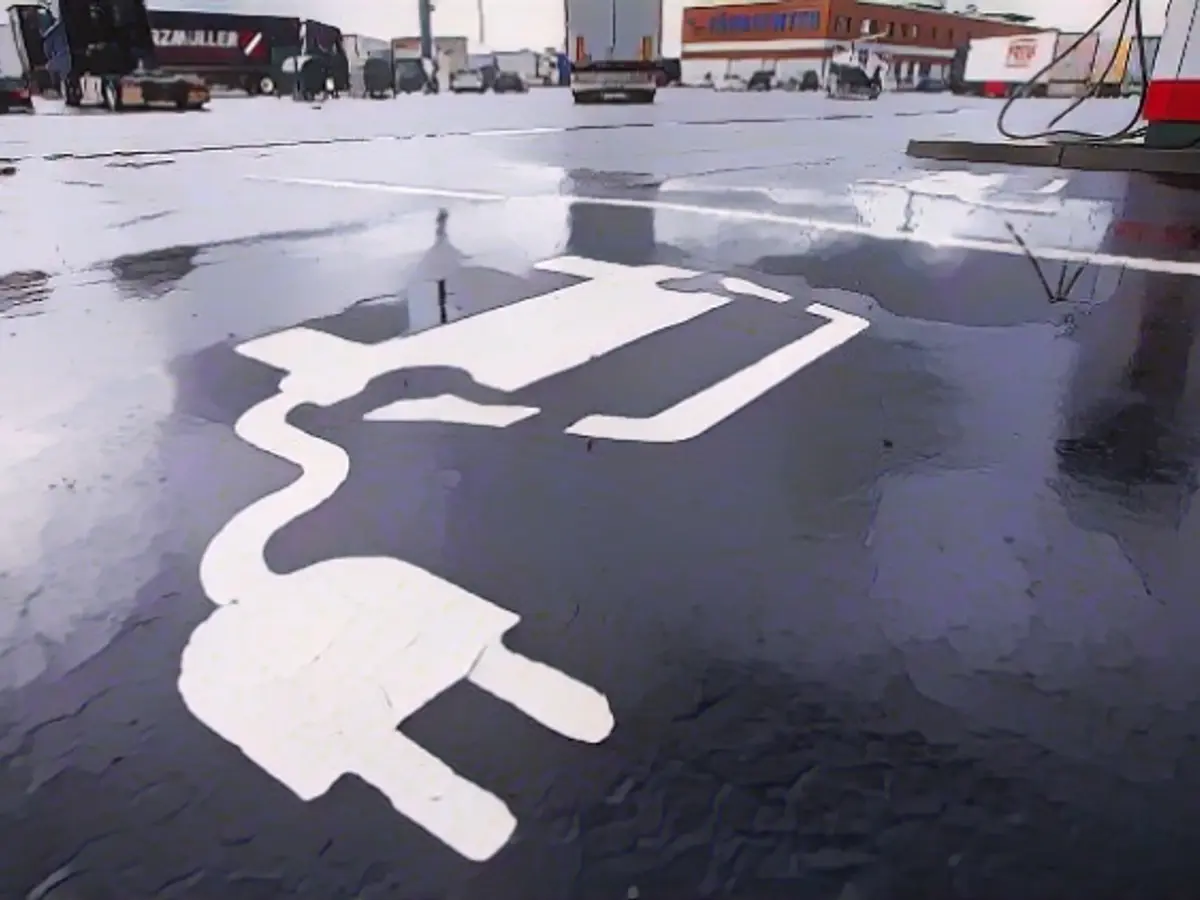Brexit tariffs for e-cars to be postponed
In the UK, German manufacturers threatened to fall further behind Chinese competitors in the sale of e-cars. The reason was tariffs due to Brexit. However, the EU Commission is now recommending that these be suspended further. This is also good news for the British car industry.
The German car industry can breathe a sigh of relief for the time being: electric cars are to be exempt from Brexit tariffs in trade between the EU and the UK for a further three years. This would prevent more expensive prices for European e-cars, which would allow German companies, for example, to better compete with companies from other regions of the world. The corresponding proposal from the EU Commission still needs to find a majority among the EU member states. Specifically, the approval of at least 15 of the 27 EU states is required. These must also represent at least 65 percent of the EU population.
Due to the UK's exit from the EU, new customs rules were actually due to come into force on January 1, 2024. Vehicles with less than 45% of their value added in the EU or the UK would then be subject to a 10% duty. This would affect manufacturers who do not achieve the value-added quota for e-cars, for example due to a lack of battery production capacity in Europe.
According to the EU Commission, aspects such as the Russian war of aggression against Ukraine or the coronavirus pandemic could not have been foreseen when the introduction of tariffs was negotiated in 2020. The European battery industry has also developed more slowly than expected due to the pandemic and the war of aggression.
Tata Group builds "Gigafactory"
The levies are also an incentive for companies to expand the battery industry in Europe. The Commission proposal therefore also states that there should be no possibility of tariffs being suspended for longer than December 31, 2026. The Tata Group, for example, which owns the British brands Jaguar Land Rover, wants to build a multi-billion euro "Gigafactory". The British government is supporting the projects with large amounts of funding.
There is also funding on the European side. For example, the Commission has announced that it will provide the most sustainable European battery manufacturers with funding of up to three billion euros for three years. Both British car manufacturers and the German automotive industry will benefit from the extension of the rules of origin, as Marc Lehnfeld from the federally owned company Germany Trade and Invest (GTAI) emphasized in London.
In German-British trade, the so-called car factor - i.e. foreign trade in car parts and engines - is the most important group of goods at around 22 percent in the current year. "The British automotive industry can now regain confidence," said Lehnfeld. "The German automotive industry can also benefit from the shift." Germany is the UK's most important supplier country for fully electric vehicles and hybrids.
British government praises Commission recommendation
British car manufacturers feared that they would no longer be competitive in the important EU export market due to the tariffs from next year. German car manufacturers would also be affected by tariffs on exports to the UK in future if they are not suspended. The German Association of the Automotive Industry (VDA) has already described the duties as a significant disadvantage for European companies compared to their Asian competitors in the important UK market.
Association President Hildegard Müller reacted positively to the EU Commission's announcement: "This decision is the right one and a win for the climate, industry and consumers." The proposal must now be implemented as quickly as possible by the EU states and the UK. Following a decline in sales due to Brexit, the pandemic and supply chain problems, for example, the British car industry has seen improved figures in recent months.
However, without the extension of the tariff exemptions, the recent upturn would probably have quickly collapsed again, as industry representatives had warned. The British government described the EU Commission's proposal as a positive step that would give the industry long-term security and ensure that it remains competitive worldwide. "We have a shared goal of expanding domestic electric vehicle production and battery supply chains," it said in a statement.
Read also:
- Year of climate records: extreme is the new normal
- Precautionary arrests show Islamist terror threat
- Numerous oil, gas and coal lobbyists at climate conference
- COP28: Emirates announce fund for climate projects
The decision to postpone tariffs on e-cars imported from the EU to Great Britain could significantly benefit British car manufacturers, as they would avoid becoming less competitive in the EU export market. This could also positively impact German car manufacturers, such as those from the VDA, as they would not face tariffs on exports to the UK. The EU Commission's proposal to suspend tariffs for e-cars in trade between the EU and the UK for three more years will require approval from at least 15 EU member states, representing 65% of the EU population.
Source: www.ntv.de








